Q&A with Climate Change Podcast Host, Michaela Mast ’13
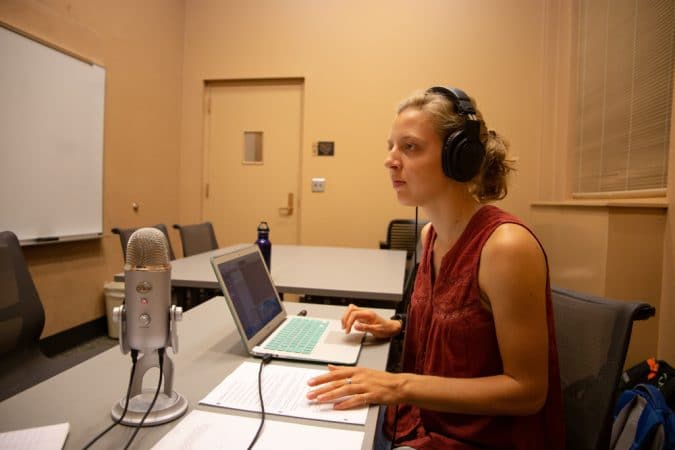
Shifting Climates, a podcast produced by Michaela Mast ’13 and colleagues, launched its second season earlier this month featuring interviews gathered from New Haven, Connecticut, to Flagstaff, Arizona, including among Native American elders.
The podcast, which Michaela produces along with Harrison Horst and Sarah Longenecker, aims to “re-humanize the conversation” on climate change by talking about climate justice and the church, featuring interviews with people from 11 states and five countries.
Shifting Climates is the result of a year-long fellowship with the Center for Sustainable Climate Solutions, which offers programs for current students and recent graduates of Eastern Mennonite University who are interested in the intersection of faith and climate.
Following are some of Michaela’s reflections on the how the project has informed her thinking.
Q: Did you ever imagine yourself producing a podcast? What has it been like?
No, becoming a podcaster was definitely not on my list of priorities! But I have learned along the way that this work appeals to many of my interests and strong suits. For one, I get to pull from so many areas of study – psychology when we’re thinking about our audience and what they’ll be receptive to, theology when we integrate an Anabaptist worldview, environmental science when we’re talking facts, music when collaborating with our musicians to compose our soundtrack, creative writing in the process of designing our episodes, and even theatre when we script-write and record. I got hooked on the variety within the job.
There was definitely a steep learning curve at the beginning. We had to think about the style of our podcast – things like the type of narration we wanted and how often we wanted to play music. We had to learn how to interview people well, sometimes on the spot without good questions prepared. And how do you go about talking about tough topics like climate change and racism with a stranger? Then there was all of the transcribing – we spent hours on this! I had to learn a lot about audio-editing and recording as well. And then came the hardest part – the outlining. How do you take 30+ hours of recorded content and turn it into a 10-episode podcast season? Clearly, I learned so much about the process of creating a podcast along the way, and that doesn’t even get to what I learned in over 60 interviews and 2 months of travel.
Q: How has this experience shaped you and wherever you go longer term or how you live longer term?
Though I’d love to try it out in a more professional setting, I’m not sure I’ll ever be a podcaster again. But bigger picture, this project has shaped the way I see the world, so it will certainly influence me going forward. When I started this project, I was following a nudge to lean into the daunting realities of climate change instead of avoiding them. I was unsure, and I wasn’t willing to go at it alone, but now I don’t think I’ll ever be able to give it up.
The more we learned, the clearer it became that addressing climate change also means creating a better world for all people. Climate response is what we’ve come to call a “container issue” or “umbrella issue” – if we start looking closely at the impacts of climate change, it doesn’t take long to see that there is a disproportionate impact on the people who are already most vulnerable, both domestically and globally. So when we’re talking about caring for the immigrant, we have to talk about climate change, because droughts and violence over resources in Central America are a big push factor. When we talk about healing the wounds of systematic racism, we have to look at the ways that the industries causing climate change are sacrificing the health of communities, most often low income communities of color. When we’re talking about making peace with our neighbors, we have to talk about the ways that war on creation causes cancer and asthma epidemics in the suburbs of Chicago and perpetuates poverty in coal towns and separates families in Central America.
It’s all interrelated. This has taught me about my place in the community of creation, interconnected with all living things. The image of God’s kingdom, of whole relationships between God and humans and the rest of the living world, has come alive as I imagine what a restored earth could look like. So I know that pursuing a just world by addressing climate change will be a part of my life in one way or another.
Q: Any advice for people who want to stay informed about climate change and live lives of integrity in uncertain times?
Start talking. Don’t try to sit in your anxieties or uncertainties alone. I truly think that normalizing the conversation on climate change is the first step. The existential threat that climate change poses is not something our brains are wired to respond to, so often we avoid the thought of it. I have found that confronting those fears has resulted in a release of sorts – isn’t it relieving to think that we don’t have to figure out how to respond alone? I once heard that the first casualty of fear is imagination. If we would talk to one another about our questions and anxieties, I think we would realize that we’re not alone. And then, by leveraging our collective creativity and imagination, we could make big steps toward creating a cultural shift in our community.
Speaking from experience, don’t underestimate the power of listening. There were interviews where I went in feeling a little shaky in the knees. Talking about climate change is not everyone’s cup of tea, especially in rural West Virginia in a coal town. But I was humbled at the end of every interview to find that people were willing to engage. There is an entry point into the conversation on climate change for everyone, common ground to be found somewhere. Sometimes it just takes some listening to find out what language the other person is speaking.
Listening can have some surprising results. There are people in this world who have answers. I think specifically of the Native Americans we met and learned from in our travels who have deep wisdom that could teach us how to heal our relationship with the land and with others. There is a network of people out there, each shaping their response to the gifts and needs of their communities.
We need some sweeping policy changes to cut down our carbon emissions as much as necessary. But to truly get to the root of this crisis, I believe that a cultural shift is in order. And for that reason, I see climate response as an opportunity to build a better world. Isn’t a cultural shift, a third way, what we talk about as people of faith? This is a chance to revitalize the church, to experience the way God’s spirit moves in places of healing and restoration, and to bring God’s vision for a peaceful and just world to life. When it comes to responding to cultural crisis, we have a pretty cool model in Jesus.
Q: What gives you hope?
All of the above gives me hope!
More about the podcast
After graduating from EMU in May of 2018, Michaela and her colleagues traveled and gathered interviews in the east coast and Midwest. From farming and coal mining to theology and social justice, their conversations follow a framework that says “any discussion about climate change should have three empty chairs in the room: One for future generations, one for all other species, all non-human life, and one for the poor and marginalized in our world today.” In these conversations, an Anabaptist theological framework is used to connect the often controversial topic of climate change and action to the church community.
The first season wrapped in early March with 10 half-hour-long episodes. The second season launched in June and will release every Tuesday through July. The podcast streams online at www.shiftingclimates.com or on Stitcher, Spotify, Google Podcasts, or any other podcast app.
Michaela, Horst and Longenecker also participated and presented at conferences and schools. The podcast has been featured by Green Seminary Initiative and Peacing It All Together.
The Center for Sustainable Climate Solutions (CSCS) is a collaborative effort of Eastern Mennonite University, Goshen College, and Mennonite Central Committee. CSCS advances thinking and action in Anabaptist and other faith communities to mitigate climate change. Our goal is to make climate change the moral equivalent of war and violence in the Anabaptist community and to change hearts and minds around climate change in the church. Learn more about the Center at www.sustainableclimatesolutions.org. For information on the podcast, contact Harrison Horst, harrison.g.horst@gmail.com; Daniel Bellerose, daniel.bellerose@emu.edu or 540-810-4109; Emily Griffioen, emily.griffioen@emu.edu

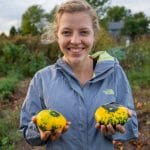

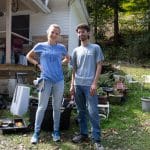
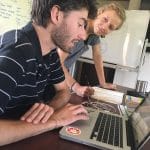
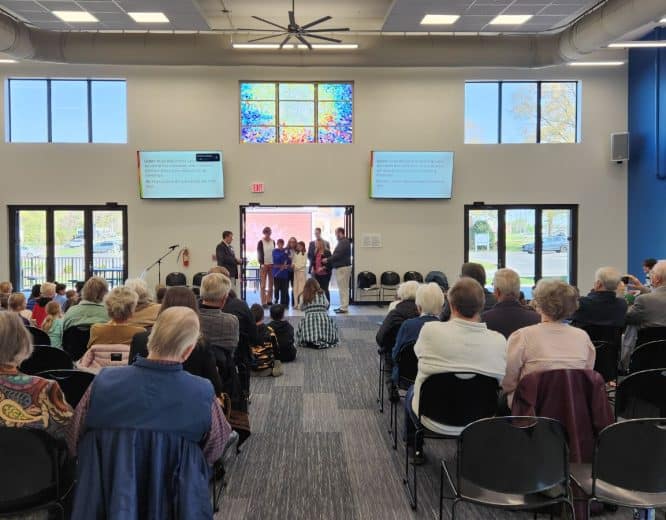
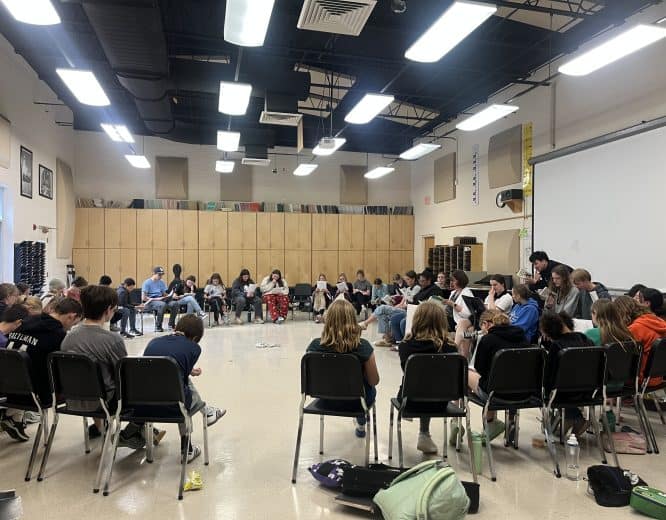
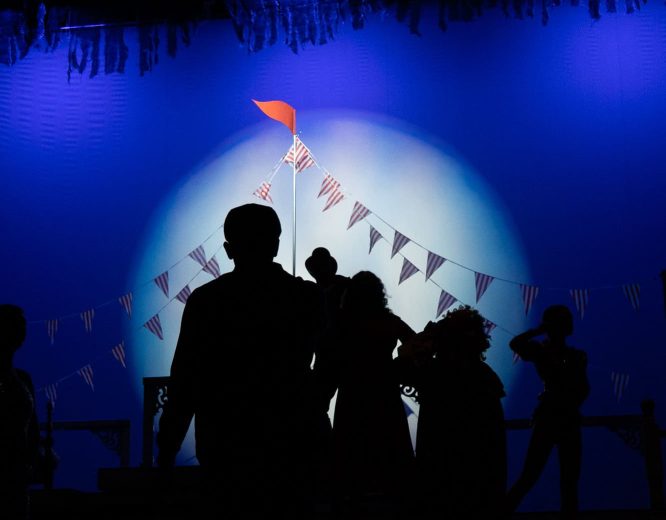
Thank you for engaging! Keep posting!